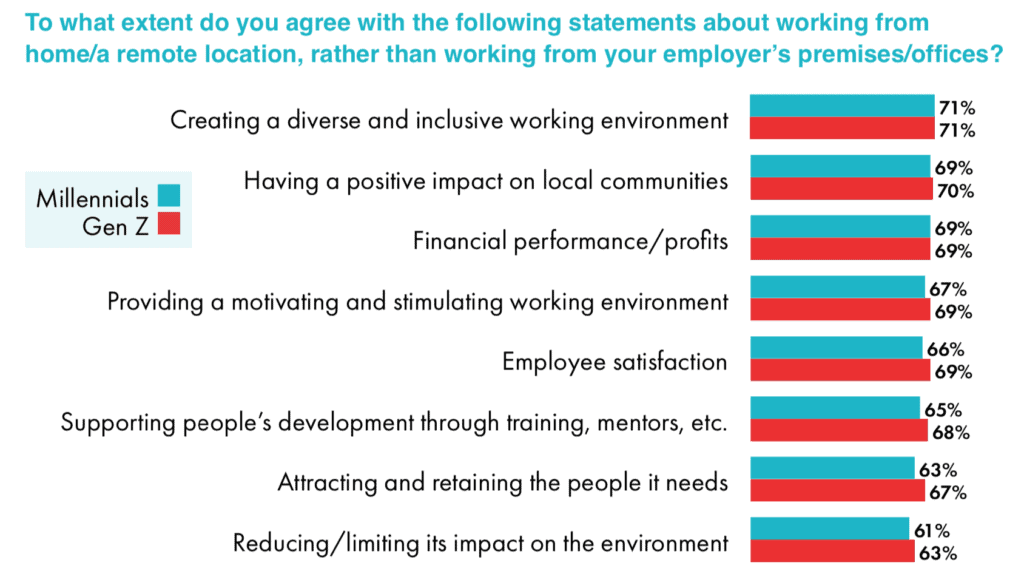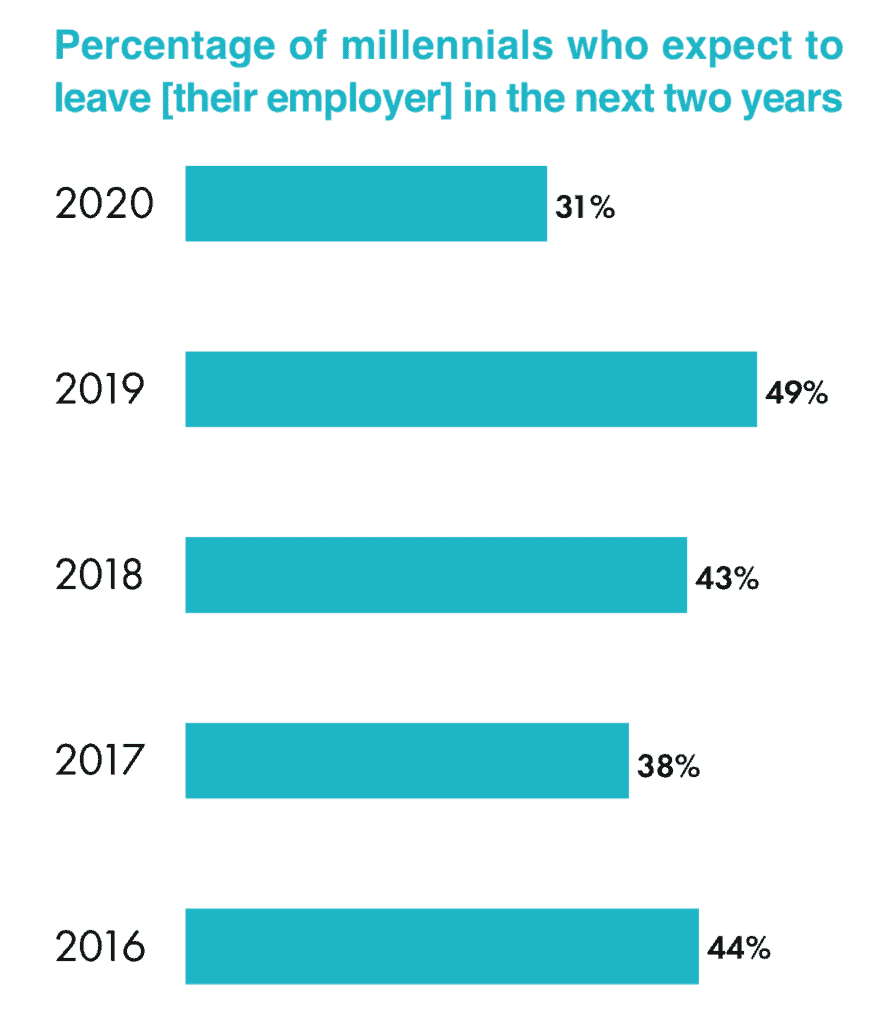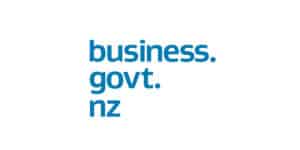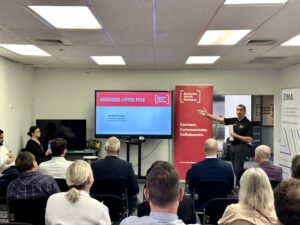Why recognising employees’ core values could be a key to business success
Millennials are now the predominant generation in the New Zealand workforce, with Gen Z also now just starting to make their influence felt.
As Deloitte was working on its 2020 Millennial Survey, the World Health Organization reported a “cluster of pneumonia cases” in China’s Hubei province. As the world changed before their eyes, the survey team members realised that the data gathered was quickly becoming obsolete. They therefore quickly developed and administered a “pulse” survey to approximately half as many people as the original survey, so that the effects of a global pandemic on the opinions of millennials and Gen Z could be gauged.

A key section of the research sought views about “The changing nature of work”. FYI approached Deloitte New Zealand’s capital partner Lauren Foster to share some insights and explain how these could assist business owners in North Harbour.
Recognising the need to adapt to suit the new generations of workers and the possibilities of advancing technology, many New Zealand businesses were already well underway to thinking about the changing nature of work in early 2020. However, Covid-19 accelerated this thinking and forced changes such as the adoption of digital collaboration tools, like MS Teams and Zoom, to happen almost overnight (as discussed in FYI November 2020). “Whilst it was not and is not possible for every job to be done remotely, more than 60 per cent of respondents to our survey indicated they would like the option of working remotely more frequently,” says Lauren. “Additionally, many said they preferred videoconferencing over travelling for work – citing better work/ life balance, as well as reducing their envi- ronmental impact as key reasons for this.”

She concludes therefore that businesses should ensure they have the digital capabilities to allow employees to stay connected and fulfil their work requirements no matter where they are working from. “It’s also essential to ensure employees can work remotely and effectively by providing them with the necessary training, education and development opportunities.”
When and where work gets done is only part of the changing nature of work. “More mature organisations are striving to provide flexibility and autonomy for how and what work is performed, building networks of teams and technology to augment work and collaborate in ways that deliver the best outcomes for customers, business and employees.”
Even in a constantly changing world, millennials and Gen Z are holding true to their core values. “The most successful organisations will be those that actively seek to design employee experiences, promote the organi- sation’s culture, and work with employees to develop various options for work. Businesses should actively engage in regular dialogue with their employees to gather their viewpoints and hear their concerns and understand how these can enable the organisation to deliver on its business strategy.”
Millennials report high levels of stress, with 48 per cent of the New Zealand respondents saying they feel anxious or stressed all or most of the time. “When we asked about the reasons for concern, climate change and the environment, safety, and income inequality were the top three issues.”

Lauren suggests that employee experiences need to be “re-architected to consider the ‘moments that matter’ in an environment where everyone is working differently”. She highlights several areas, such as employee onboarding, coaching and development opportunities, which need to be considered to ensure all team members – regardless of their decisions around how and when they work – have a good employee experience. “Additionally, by focusing on designing the experience around improved wellbeing outcomes, organisations are contributing to healthier, happier and more engaged employees.”
Related to this, employers are beginning to score better on questions surrounding investment in training and skills, as well as their positive impact on communities and the environment. “Ensuring these trends continue and organisations are highlighting their activities in these areas will be key to attracting and retaining talent from the millennial and Gen Z generations.”
To cater for the most diverse range of people, organisations will need to offer choices – which work for both the employee and the employer. These allow for the preferences between generations, but also other aspects, such as cultural needs and stages of life. “Rather than implement a one-size-fits-all approach, it’s best to create policies that give everyone access to options, which they can then tailor for their role and personal preferences.
Furthermore, it is important to find ways of working that allow for collaboration and connection between teams. “There will always be those who prefer in-person meetings and those who would rather use a video conference. Finding ways to balance this will be important to ensure the cohesiveness of teams and the quality of outputs.”

On the subject of mental wellbeing, when Deloitte asked New Zealand millennials if stress was a legitimate reason to take time off work, 62 per cent agreed that it was, compared to only 50 per cent globally. “This could be down to conversations taking place in New Zealand about the importance of mental health and it tells us that millennials are clear on what they need to manage their own wellbeing,” considers Lauren.
However, work remains to be done by leaders to ensure the millennial and Gen Z generations are confident that they can seek and receive the support they need to be successful in a professional setting. “Only 44 per cent of millennials globally who took time off work because of stress or anxiety issues admitted that was the reason to their employers. And interestingly, millennials who were candid about their absences were three times as likely to say their organisations provided strong mental health support. This suggests that employers who encourage open dialogues about mental health are more likely to have happier, better performing employees who ultimately want to stay with their organisation for longer.”
What about the stereotype that millennials are “job hoppers”? Deloitte’s recent findings go some way to debunking this cliché. “For the first time since asking the question in 2016, we saw millennials want to stay with employers for more than five years rather than leave within two years,” Lauren remarks. She says that much of the credit for this goes to employers for their work to address the values of their generation – as well as their efforts to create cultures of lifelong learning. “Covid-19 may also impact loyalty as people seek stability in an unstable world. Whether this will last once the borders open up remains to be seen – employers can protect against this by ensuring they are prioritising the development of inclusive cultures that emphasise skills and training as well as having a positive impact on the world around them.”
Gen ZMillennialsWorkforce




